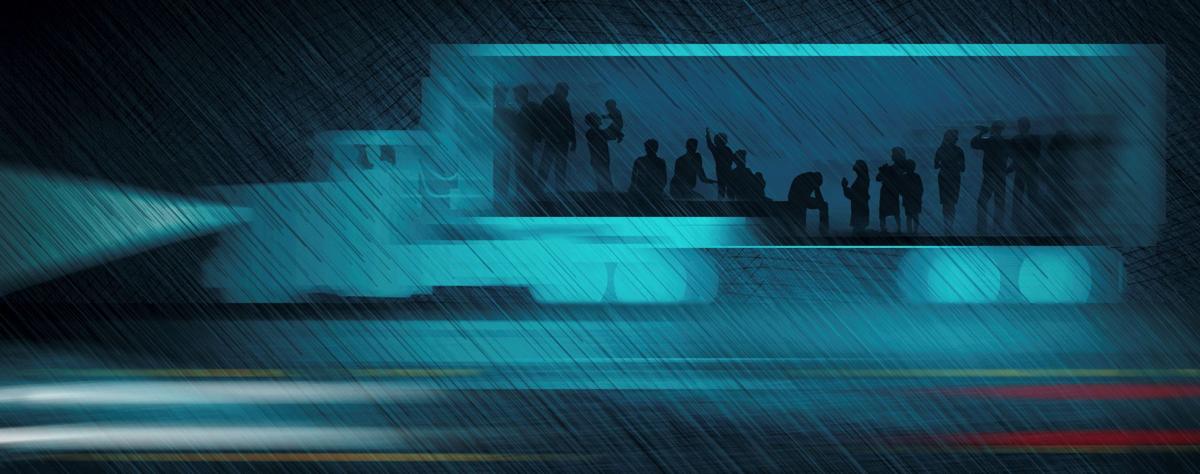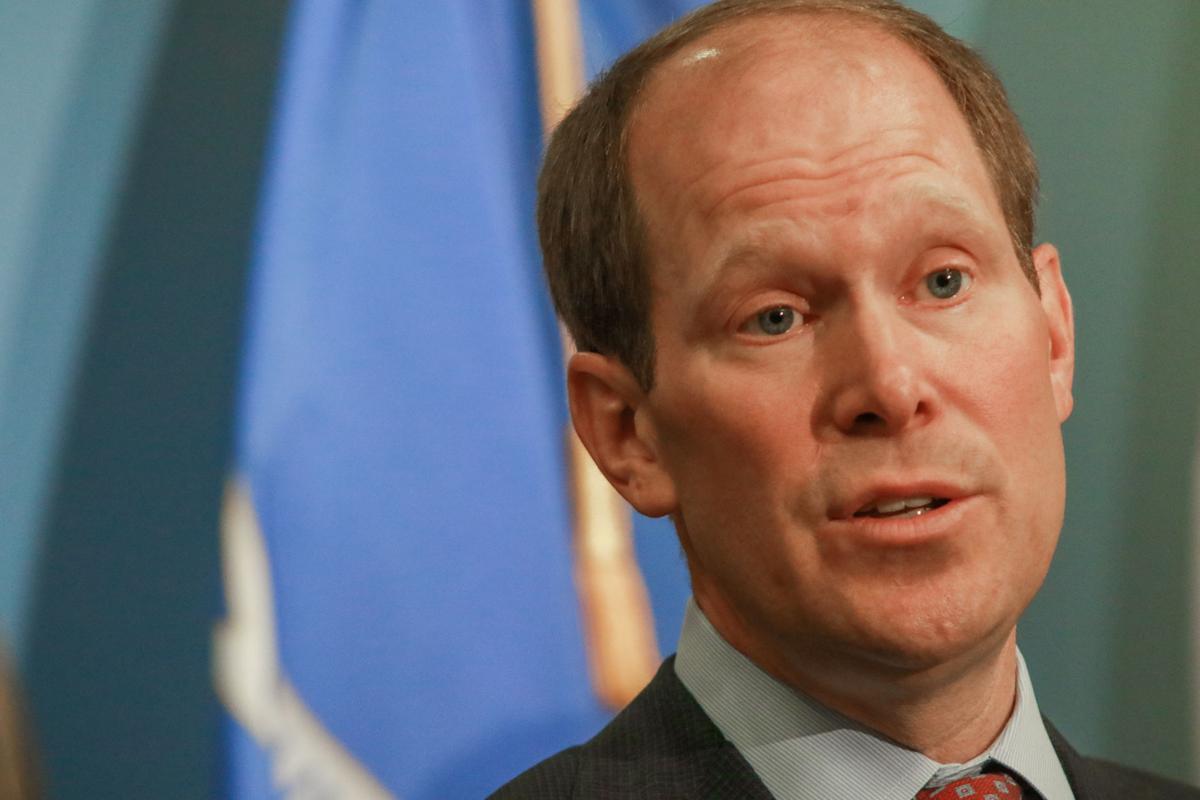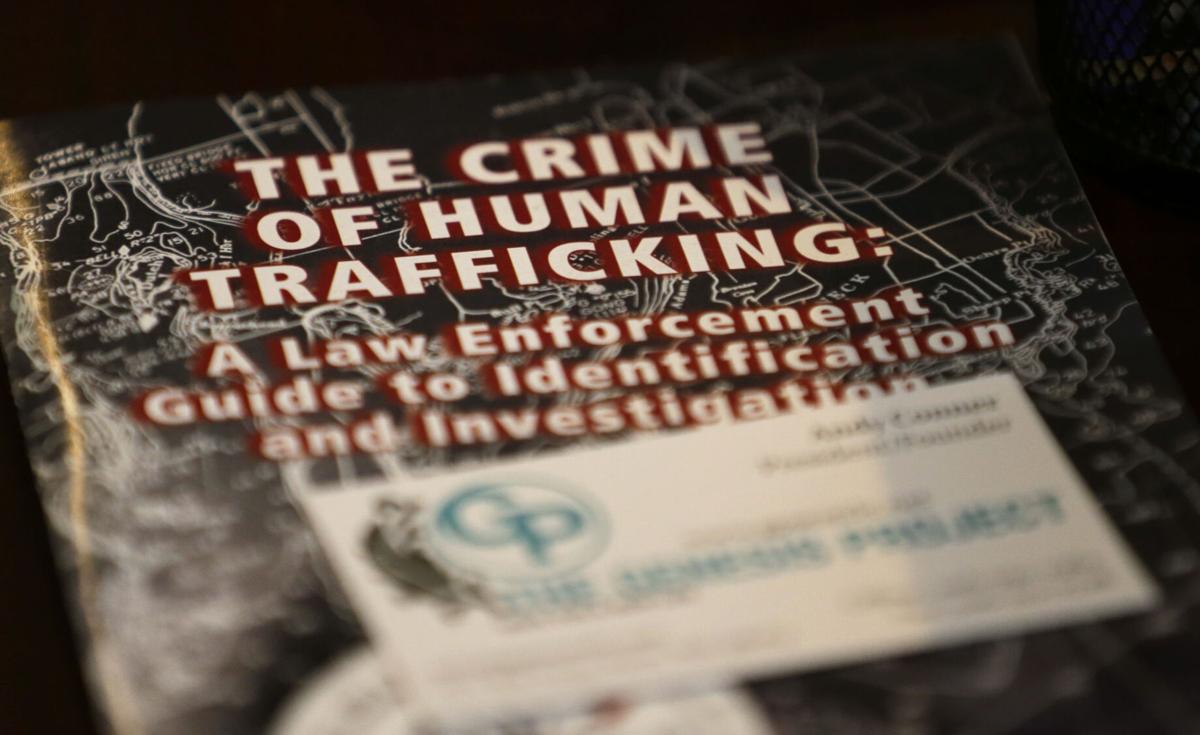Lack of fed trafficking charges does not mean crackdown slowed in Region 'hotbed,' feds say | Crime and Courts | nwitimes.com
Lack of fed trafficking charges does not mean crackdown slowed in Region 'hotbed,' feds say | Crime and Courts | nwitimes.com
Lack of fed trafficking charges does not mean crackdown slowed in Region 'hotbed,' feds say
1 of 3
Anew report placing Indiana last in the nation in 2019 for filing no new human trafficking cases in federal court does not tell the whole story, according to Thomas Kirsch II, U.S. attorney for the Northern District of Indiana.
The annual report by The Human Trafficking Institute only identifies cases charged under certain statutes, he said.
"It does not reflect the full scope of federal and state law enforcement efforts to combat this problem," Kirsch said. "Human trafficking continues to be a serious and dangerous issue for our community. We are actively working and meeting with other agencies, nonprofits and service providers to find multi-disciplinary solutions to the challenges that result from human trafficking.
"We work in unison with local prosecutors to investigate and prosecute human traffickers with all tools available at the federal and state levels. There are often advantages for charging human trafficking cases federally because of the criminal penalties and resources. But whether a case is charged in the state or federal system can involve a variety of factors. Like us, our state partners have a variety of charging options to prosecute offenders."
Indiana was not alone in filing no new federal human trafficking cases last year, HTI Associate Legal Counsel Kyleigh Feehs said.
"Nineteen other states and U.S. territories also failed to file new criminal prosecutions last year," she said.
It was the first year in at least five years that federal prosecutors in Indiana did not file any new human trafficking prosecutions, she said. The largest number of new filings in the past five years was seven, which came in 2017.
The annual study found that Indiana ranked 25th in the nation for active human trafficking cases last year with seven cases pending in federal courts across the state, Feehs said. All seven of the cases, as in years past, were sex trafficking cases, she said.
Indiana also ranked 25th in the number of defendants (three) convicted in 2019, Feehs said. That was a decline from the year prior when federal judges in Indiana convicted 15 defendants in human trafficking cases.
Human trafficking is broadly defined as "compelling another person to provide labor or services or to engage in a commercial sex act by force, fraud or coercion," Kirsch said.
"Human trafficking is one of the oldest and widespread criminal enterprises in the world," Kirsch said. "It is a modern form of slavery and exploits the most vulnerable among us. During difficult times like these, victims are increasingly at risk for their safety and potential recruitment.
"Human trafficking affects every demographic; no community is immune. Many of the victims we have encountered locally are minors, immigrants or those suffering from drug addictions. The common characteristic of human trafficking victims is that they are vulnerable."
Region a 'hotbed' for trafficking
Dr. Kalyani Gopal, a clinical psychologist and advocate for trafficking victims based in Munster, attributes the absence of new cases in part to a lack of resources for investigating human trafficking.
"Unfortunately if a county does not have dedicated detectives and FBI directed towards combating human trafficking it is not possible to arrest and then prosecute as many traffickers as we would like to," she said. "So, it's not that Indiana does not have as many cases as elsewhere but that we need to have funded detectives working on these cases."
Gopal describes the Region is a "hotbed" for trafficking due to its easy access to and from Chicago, as well as "sophisticated online mechanisms" they use to lure victims.
But people are also victimized in neighborhoods everywhere, and in plain sight, she added. Some lead otherwise normal lives but don’t report that they're being trafficked, out of fear, the possibility of disbelief or a sense of alienation.
"It encompasses all socioeconomic strata, all professions, and all races and genders," she said. "Transgender youth are at very high risk due to societal rejection."
The Human Trafficking Institute began its annual report three years ago with the goal of filling a need for reliable data "to deepen understanding, inform conversation, and shape policies about effective means to combat human trafficking," Feehs said.
"Through an objective presentation of data, the report serves as a tool for policymakers, researchers, advocates and others as they explain current practices, argue for changes in policy, or recommend new approaches for combating human trafficking," she said.
Among the key findings is that traffickers target vulnerable individuals, most commonly preying on those with drug dependencies or substance use disorders, child runaways, those with irregular immigration status, the homeless, and those with prior sexual exploitation or abuse, Feehs said.
"In contrast to the images of trafficking commonly portrayed by Hollywood movies and social media posts in which traffickers abduct victims from a hotel room or shopping mall, the data shows that most trafficking victims are recruited online, by someone that they know, or through fraudulent job offers," she said.
Gopal said law enforcement requires specialized training to identify, rescue and ensure the safety of victims. Without a sense of security, victims are less likely to identify their traffickers.
Individuals often are trafficked by their own family members, friends or others they know personally, according to Gopal.
"The myth is that traffickers kidnapped children — the truth is that most trafficked victims know their traffickers," Gopal said.
Many victims suffer what is called a "trauma bond," or a strong emotional attachment with their abuser. This makes prosecuting traffickers exceedingly difficult, she said.
In August, Gopal identified and enrolled in treatment 14 individuals who were trafficked as young adults. Most of them did not realize they were trafficked.
One of Gopal’s adult patients was trafficked at 15 years old by her mother, who sold her to a male friend. The woman did not know she was trafficked, nor did she identify as a victim, Gopal said.
Crimes hit close to home
Kirsch said his office has investigated and prosecuted a broad range of human trafficking cases. Most of the cases have been prosecuted by the Hammond division, but some also have been pursued in South Bend and Fort Wayne.
Recent local cases highlighted by Kirsch include:
- Ronnie Cosby prostituted two minor females out of his Hammond apartment and was convicted by a jury of sex trafficking a minor, interstate transportation of a minor for prostitution and production of child pornography. He was sentenced to life in prison. The case was investigated by Department of Homeland Security Investigations and Hammond Police Department.
- Rita Law, of Chicago, coerced two adult victims from China and Vietnam to perform sex acts for customers at her spas in Northwest Indiana. Law committed these crimes by exploiting her victims' immigration status and limited ability to speak English. Law was convicted at trial of labor trafficking and sentenced to 30 years in prison. One of Law’s spa employees, Crystal Wireman, also was convicted for her role in helping Law operate her illegal business. The case was investigated by HSI and FBI, with the assistance of local police departments.
- Justin Cephus, of Hammond, was convicted at trial of multiple counts of sex trafficking minors and transporting minors across state lines for prostitution and was sentenced to life in prison.
- Joseph Uvalle plead guilty to transporting individuals for prostitution in addition to RICO (Racketeer Influenced and Corrupt Organizations Act) charges arising from the Latin Kings prosecution. Uvalle admitted to prostituting two adult females by fraud and coercion and using the proceeds to further gang activities. He was sentenced to 12 years on the prostitution counts. The sex crimes were investigated by FBI and HSI, with the assistance of other agencies.
- Melinda Milton pleaded guilty to sex trafficking a minor and sex trafficking an adult by fraud and coercion. Milton admitted to trafficking four victims, three of whom were minors, and using the victims’ drug addictions to coerce them into performing commercial sex acts. Milton was sentenced to 17 years in prison. The sex crimes were investigated by the FBI and HSI, with the assistance of other agencies.
- Aleksandar Jokic, of Schererville, plead guilty to one count of aiding and abetting the transportation of a minor for prostitution. Jokic was one of Milton’s customers, and paid Milton for commercial sex acts at his home. He received a 70-month prison sentence.
"Federal law aims to criminalize anyone in the supply or demand chain who exploits human trafficking victims, including recruiters, pimps, drivers and even customers," Kirsch said.
Indiana ranked ninth in the nation last year for the percentage of defendants ordered to pay restitution, Feehs said. While federal law requires judges to charge restitution in certain human trafficking convictions, it is ordered less than 40% of the time.
"Awarding restitution in human trafficking cases is critical because victims often worked without pay for the financial benefit of the trafficker," she said. "As a result, victims leave human trafficking situations with few or no resources with which to rebuild their lives, making a restitution order essential for their recovery."
A lack of housing for rescued victims is a major reason for few prosecutions, Gopal said. That’s why Gopal co-founded an effort to build a housing and rehabilitation center for trafficked children in Northwest Indiana.
The SAFE Coalition for Human Rights is a nonprofit that aims to purchase a large parcel of property for the retreat — which would have housing for up to 100 victims, security fencing and access to counseling.
"I hope to see a SAFE Village (developed) in NWI so that our traumatized youth have a chance to live their lives as fully and safely as they so richly deserve," she said. "If one child succeeds, then their future generations stand a better chance for survival."
Kirsch said it takes a community effort to confront the problems of human trafficking.
"My office will continue to aggressively investigate and prosecute human trafficking cases. We will also stay intricately involved in community organizations and other coalitions that work to identify and provide assistance to victims of these crimes."




Comments
Post a Comment